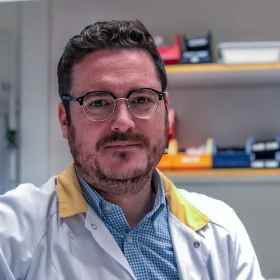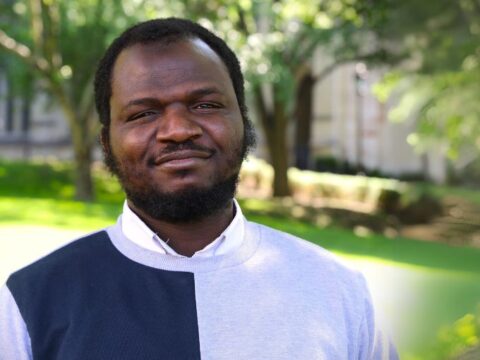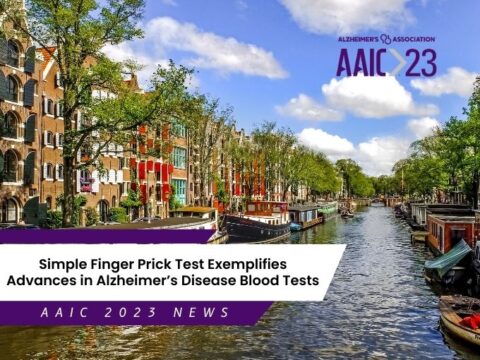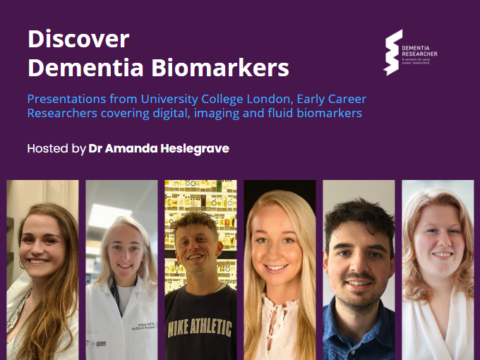
Dr Nicholas Ashton
Name:
Dr Nicholas Ashton
Job title:
Associate Professor of Neurochemistry
Place of work / study:
Banner Health
Area of Research:
Biomarkers in Neurology
How is your work funded?
Various charitable foundations across Europe (mainly UK and Sweden) & Banner Health in Arizona, USA
Tell us a little about yourself:
I am Associate Professor of Neurochemistry at Banner Health in Arizona, and in the Department of Psychiatry and Neurochemistry at the University Gothenburg in the group of Professor’s Henrik Zetterberg and Kaj Blennow. I also hold a senior researcher position at the department of Old Age Psychiatry, King’s College London, and Stavanger University in Norway. I received my PhD in 2017 from King’s College London in the group of Sir Professor Simon Lovestone.
I have more than a decade of experience in biofluid analysis and assay development for Alzheimer’s disease, which ranges from discovery mass spectrometry methods to ultra-sensitive immunoassays. Recently this has produced ultra-sensitive single molecular array (Simoa) assays for phosphorylated tau in blood, which are now widely used in research settings, therapeutics trials and being validated for clinical use. Current research now focuses on understanding different tau and synaptic forms in biofluids and how they may contribute to the knowledge of disease pathogenesis and ultimately clinical use. I have published >150 original research articles in field of fluid biomarkers and in 2021. In 2021, it was an honour to receive the Queen of Sweden Prize to a Young Alzheimer Researcher for his contribution dementia research and 2022 received the Viola Bergqvist award for mentorship.
Other than this, I avidly follow Football and support Everton (for my sins), try to play squash, golf and Padel (sports you play when you hit >35). I have a Bernese Mountain Dog called Albert, who is our lab mascot.
Tell us a fun fact about yourself:
I spent 2010-2011 travelling around southern Africa performing Cataract surgery in very remote areas. Coincidentally, it matched with the World Cup in South Africa…
Why did you choose to work in dementia?
I first got into Dementia research through my Masters project – where a challenge of diagnosing Brain disorders in novel ways was presented in a fun, exciting and engaging way. This important style of mentorship continued with Dr. Abdul Hye and Professor Simon Lovestone at King’s College London.
What single piece of advice would you give to an early career researcher?
Develop a niche in Science but do not isolate yourself. Be open to new projects, new ideas, and new skills, you do not know where they may lead. It is important to develop bioinformatics skills to the point where you can independently analysis your own data. Do this now and not when “you have more time” because that never arrives – I have learnt this the hard way!
What book are you reading right now? Would you recommend it?
Peter Crouch – How to Be a Footballer. I don’t recommend it.

 Print This Post
Print This Post






[…] trials, directed by Dr Nicholas Ashton, have found that a simple blood test could be as accurate as lumbar punctures in detecting […]
[…] 神经科学家致力于寻找一种成本更低、痛苦更少的阿尔茨海默病生物标志物用于临床实验室测试 尼古拉斯·阿什顿博士哥德堡大学神经化学助理教授带领一个科学家小组研究了用于识别阿尔茨海默氏症患者大脑变化的其他常见生物标志物。 这导致他们 蛋白质数量– 基于血液测试,特别是针对阿尔茨海默病开发的 ALZpath 血液测试 ALZpath 公司加利福尼亚州卡尔斯巴德 […]
[…] less costly, less painful, Alzheimer’s biomarker for clinical laboratory testing, neuroscientist Nicholas Ashton, PhD, Assistant Professor of Neurochemistry at the University of Gothenburg, led a team of scientists […]